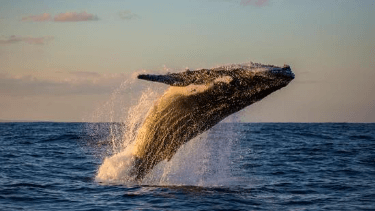Exploring how climate change is affecting whale migration

Sponsored by

Griffith University researchers are leading an international partnership between the Pontifical Catholic University of Ecuador (PUCE) and Whales & Climate Research Program (WCP) to tag and track a group of ten humpback whales as they migrate more than 15,000 km along the west coast of South America.
This project forms part of the global research activities of WCP, an initiative that brings together more than 25 researchers from eight institutions in the southern hemisphere.
The team, comprising researchers from PUCE, The Whale Museum, Pacific Whale Foundation and the Smithsonian Tropical Research Institute tagged the whales in mid-September 2022, before they began their annual southern journey from the warm waters of Ecuador to the cooler climes of Antarctica.
The researchers deployed of state-of-the-art transmitters allowing the collection of detailed whale migration data for hundreds of days, as well as collecting blubber skin samples for genetic studies to supplement their findings.
Griffith University’s WCP manager, Dr Olaf Meynecke explained: ‘The data from these satellite-tagged humpback whales now travelling from their breeding to feeding grounds will provide us with unique information about migration patterns in that region. The data will assist in the development of models to predict climate change impacts on whales. A further 10–15 individuals will be fitted with satellite transmitters in the coming seasons.’
While the global humpback whale population is no longer threatened by commercial whaling, experts agree that the future of these majestic creatures is by no means assured. ‘Fishing and shipping persist as major threats that take their toll every year,’ PUCE’s Dr Fernando Felix said. ‘Changes in the physical and chemical conditions in the ocean as foreseen in in the coming decades will exacerbate the problem. Scientists need more reliable information on the environmental conditions that drive whale distribution and migration behaviour to advise decision-makers.’
Providing this sort of high-quality, impactful and evidence-based advice is key to continuing the long-term survival of the humpbacks. Professor Brendan Mackey, WCP’s co-director at Griffith said: ‘Understanding how climate change is affecting whales in the Southern Hemisphere is really important for their conservation. But this is a huge task that can only be achieved through scientists collaborating globally.’